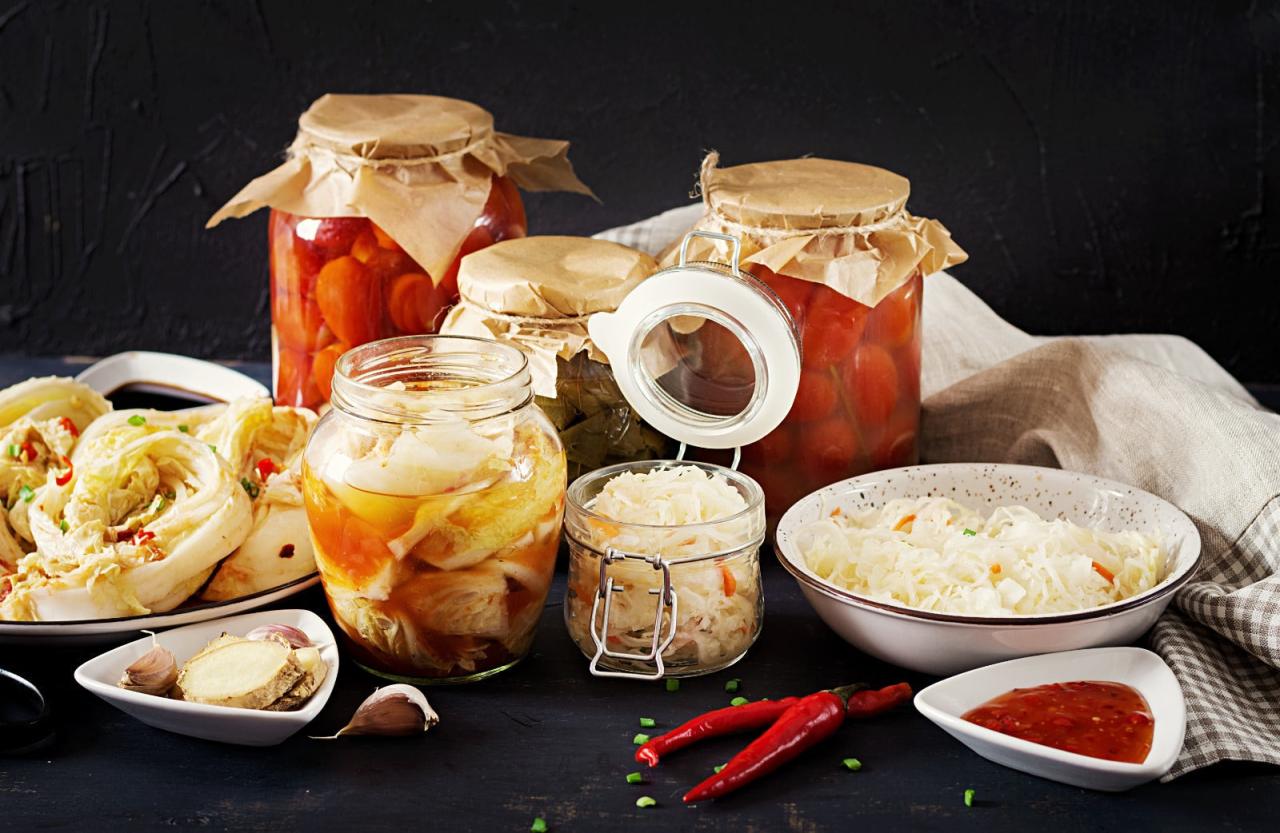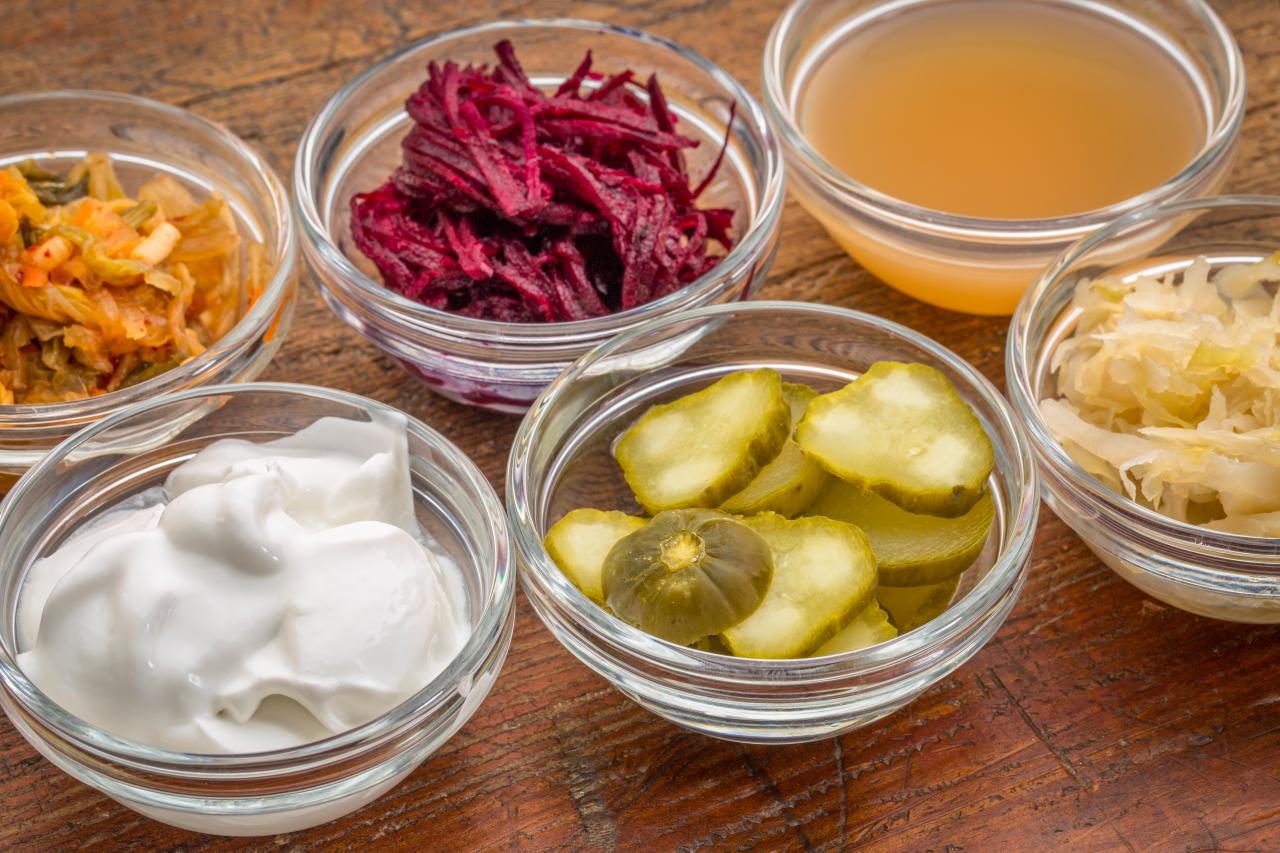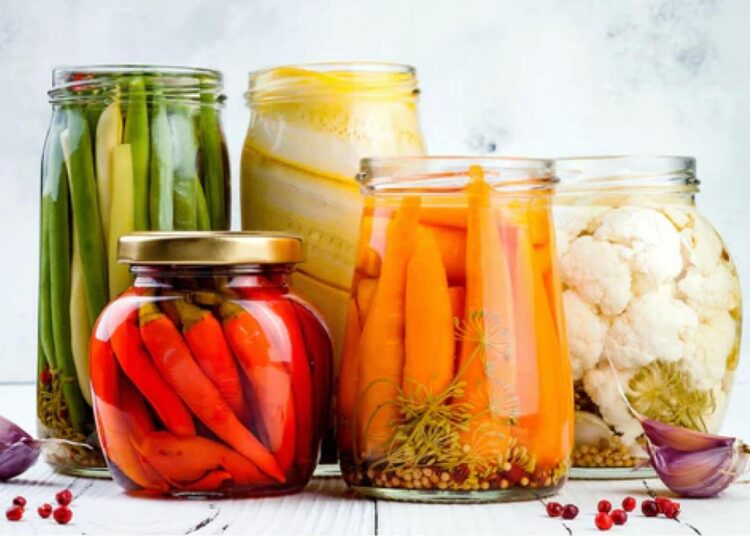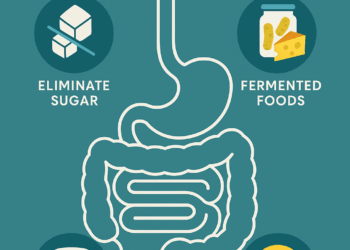Fermented foods have been prized across history by every civilization for thousands of years due to their characteristic tastes as well as medicinal virtues. Created as a natural process wherein microorganisms like bacteria, yeast, and mold turn the natural sugars found in food into beneficial compounds, fermentation has been the cornerstone of both cuisine and modern wellness. Apart from preservation, these foods are now discovered to be able to enhance digestion, enhance immunity, and promote general health. In this article, we will discuss what fermented foods are, their health benefits, and provide some common fermented foods to add to your diet.
What Are Fermented Foods?
Fermented foods are foods that have undergone a process in which microorganisms (such as bacteria, yeast, or molds) break down the starches and sugars in food.
Not only does it prevent the spoiling of food, but it also boosts the nutritional value and flavor of the food. Fermentation will occur naturally with wild bacteria or microorganisms or can be carefully controlled by introducing specific strains of yeast or bacteria. They are rich in probiotics—good bacteria that are accountable for an impeccable gut microbiome.

Health Benefits of Fermented Foods
- Improved Digestion
Fermented foods contain probiotics, beneficial bacteria that build a healthy digestive system. Probiotics aid in food digestion by maintaining the balance of the gut microbiome, preventing symptoms of bloating, constipation, and indigestion.
- Improved Immune System
The probiotics in fermented foods have also been found to enhance the immune system by strengthening the body’s defense. They help keep the body safe from disease-causing bacteria and aid immune functions, and therefore fermented foods are an easy way to remain fit.
- Improved Nutrient Absorption
Fermentation also breaks down nutrients, rendering them more bioavailable. This helps facilitate easier absorption of valuable vitamins and minerals, such as B-vitamins, magnesium, and antioxidants, so your body can get the most out of the food you consume.
- Mental Health Support
Gut health and mental health are interrelated. While fermented foods support the gut, they can reduce stress, anxiety, and even symptoms of depression since the gut is also referred to as the “second brain.”
- Radiant Skin
The probiotics in fermented foods can also improve the health of your skin. By reducing inflammation and helping to balance hormones, they can control acne and eczema and leave your skin clearer and healthier.
- Weight Management
Kimchi and sauerkraut are also low-calorie and high-fiber foods. The healthy ingredients created during fermentation can reduce hunger, increase metabolism, and help with healthy weight loss.

A List of Popular Fermented Foods
There are numerous tasty shapes, flavors, and textures to choose from for fermented foods. Some of the most popular fermented foods that you can incorporate into your diet are:
1. Yogurt
Most widely recognized fermented food, maybe, is yogurt, which is made by fermenting milk with certain bacteria such as Lactobacillus and Bifidobacterium. It is an excellent source of probiotics, protein, and calcium and is delicious and nutritious.
2. Kimchi
This Korean dish is made out of fermented radishes and cabbage with a dash of seasoning from chili, garlic, and spices. Kimchi has probiotics, antioxidants, and fiber and is a great topping for any meal.
3. Sauerkraut
This German snack is made out of fermented cabbage and is commonly used as a condiment. It’s packed with vitamin C and fiber, as well as probiotics that aid digestive health.
4. Kombucha
This probiotic and antioxidant-rich fizzy tea is made by fermenting tea with a symbiotic culture of yeast and bacteria (SCOBY). Kombucha has been prized for its digestive and fizzy taste.
5. Kefir
Thinner than yogurt but otherwise identical, kefir is a fermented milk drink containing a broad range of probiotics. It can be enjoyed on its own or added to smoothies to add an extra nutritional kick.

6. Miso
Salty, fermented soybean paste, miso is traditionally mixed into soups, dressings, or marinades. It contains protein, probiotics, and minerals.
7. Tempeh
This Indonesian dish is made by fermenting soybeans into a solid protein-rich block. It’s an excellent plant source of protein and probiotics and fiber source.
8. Pickles
Pickles or any other vegetables, fermented in brine (not vinegar), are an excellent source of probiotics. They can be consumed as a snack or even as a salad and sandwich topping.
9. Natto
A fermented Japanese soybean dish, natto is a viscous, foul-smelling food. It is rich in protein, fiber, and vitamin K2, and is healthy for the metabolism and bones.
10. Sourdough Bread
Unlike normal bread, sourdough is fermented by wild bacteria and yeast in dough. Besides giving sourdough its tangy taste, fermentation also makes bread easier to digest.

Ways of Incorporating More Fermented Foods into Your Diet
- Start the day with yogurt parfaits or smoothies as a probiotic breakfast.
- Top bowls or salads with kimchi or sauerkraut as a probiotic-rich, flavorful addition.
- Kombucha is a healthy and refreshing alternative to sweet beverages.
- Add kefir to smoothies or as the base for marinades and dressing.
- Miso soup is a comforting way to appreciate the benefits of fermented soybeans as part of a meal.
- Munch on pickles as a crunchy snack that relieves digestion and quenches hunger.
Fermented foods are not only a culinary delight but also a powerhouse of health benefits. From supporting gut health and immunity to promoting mental clarity and glowing skin, these foods are a natural way to elevate your well-being. By incorporating more fermented foods into your daily routine, you’ll enjoy both their unique flavors and their incredible nutritional value.
Call to Action:
Ready to taste the benefits of fermented foods? Start by adding a probiotic-rich food like kimchi, kombucha, or yogurt to your diet. Share the inspiration for a healthier, more active lifestyle by forwarding this article to family and friends.













